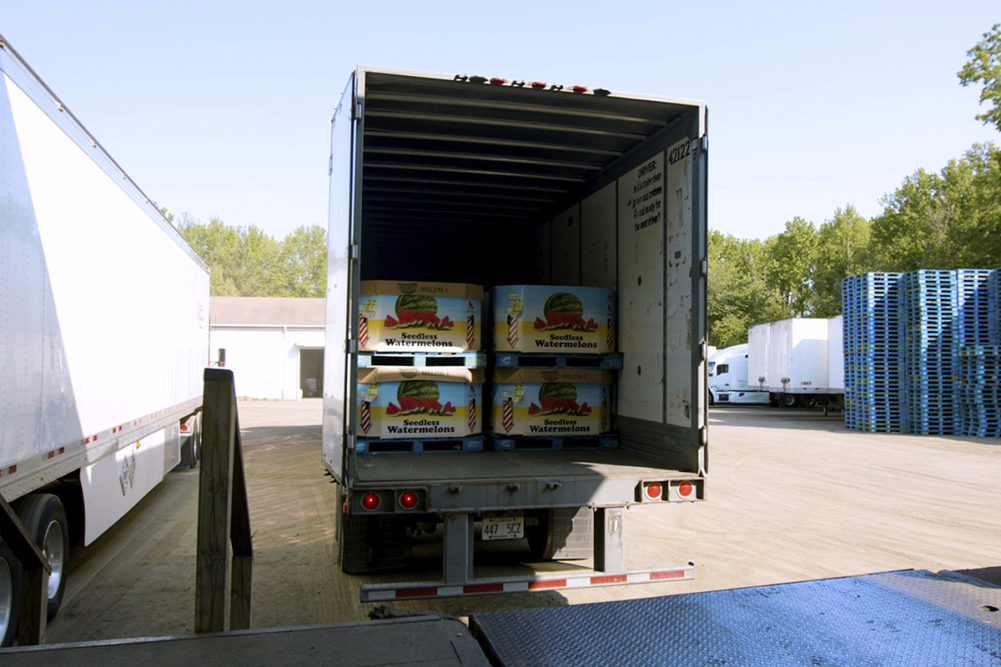Supply chains have generally stabilized, but not without a bumpy ride along the way, said William Welker, executive domestic sales and strategy manager for Jacksonville, Fla.-based CSX. “Significant disruptions due to pandemic-related lockdowns, restrictions, and changes in consumer behavior impacted virtually every industry, including transportation and logistics. Following on the heels of these disruptions, an unprecedented strong market resulted in tremendous equipment orders, most of which had a long runway due to the pandemic.”
Producers attempted to increase capacity to take advantage of the high rates and strong orders. But, Welker said, as equipment orders started to be fulfilled and new trucks hit the road, demand began to normalize.
The result was a sort of “freight recession,” with high capacity and lower demand.
“This has brought us the low-rate environment we’re seeing today, but we all know these things are cyclical.”
Fresh food supply chain issues are largely resolved, he added. The industry is seeing ample capacity, and rates are at near-historic lows.
“Now is a good time to get asset-based carriers and intermodal operators into your carrier portfolios.”
Some buyers from the major grocery chains and foodservice providers place small orders several times a week, which in many cases increases costs and does not guarantee freshness, Welker said.
That means suppliers are forced to run trucks in for multiple small deliveries that create a false sense of fresh product turn.
“They’ve succeeded in turning their warehouse over in 72 hours, but in most cases it’s the same product being delivered that week. It’s important to identify and address situations where simply ‘trading warehouses’ is driving up costs.”
Refrigerated less-than-load (LTL) deliveries become essential in this fulfillment model, Welker said, because reefer LTL is difficult, expensive and frequently runs at a compromise temperature.
The three musts of getting fresh foods from Point A to Point B
Efficiency, accuracy and reliability are the keys to successfully transporting foods from producers to consumers, Welker said.
Every step of the process is important and needs to be done faster and correctly.
A single incorrect keystroke, for example, can cause a delay at the shipping point due to a wrong pickup number.
“That wrong pickup number can cause the truck to go to the back of the line and actually lose that day’s load,” he said. “There are lines of trucks waiting for product, and fresh product will be loaded onto the trucks that show up with the right numbers.”
The same situation applies across the board: Trucks must have the proper equipment to secure the load, the reefer unit must be pre-checked for functionality, and the driver must have enough hours to complete the run — and so on.
CSX, Welker said, understands these parameters and follows them to a T.
“This is fairly unique in the intermodal industry and has been very beneficial for us. Intermodal does take minimally more time, but the temperature is properly maintained and the carbon and cost savings are real.”
CSX can offer reliable, environmentally friendly service, with consistent capacity and pricing in a turbulent and uncertain market.
Low truck rates, Welker said, have created an almost unsustainable market environment. Many of the trucking companies are operating below cost, deferring maintenance and other overhead trying to compete and stay afloat.
“When holiday, weekend or weather rushes happen trucking companies quickly increase their rates to recover some of the losses incurred in the prior weeks or months. These fluctuations in the delivered cost of goods create problems for customers.”
With consistent business, he said, CSX is able to smooth out these bumps. There will always be a place for trucks, but many CSX customers are seeing the value of dedicating a fixed percentage of their business to an intermodal platform. Customers have recognized how a few small process changes can result in considerable freight savings using intermodal, and CSX is seeing their fixed percentages grow.
In addition, the carbon savings realized by customers are increasing every year. Rail, Welker said, is inherently more fuel-efficient and better for the environment than shipping by truck.
“CSX continues to pursue innovative service solutions that combine long- and medium-haul rail with short-haul trucking, enabling customers to increase their use of safe and environmentally advantaged rail transportation.”

